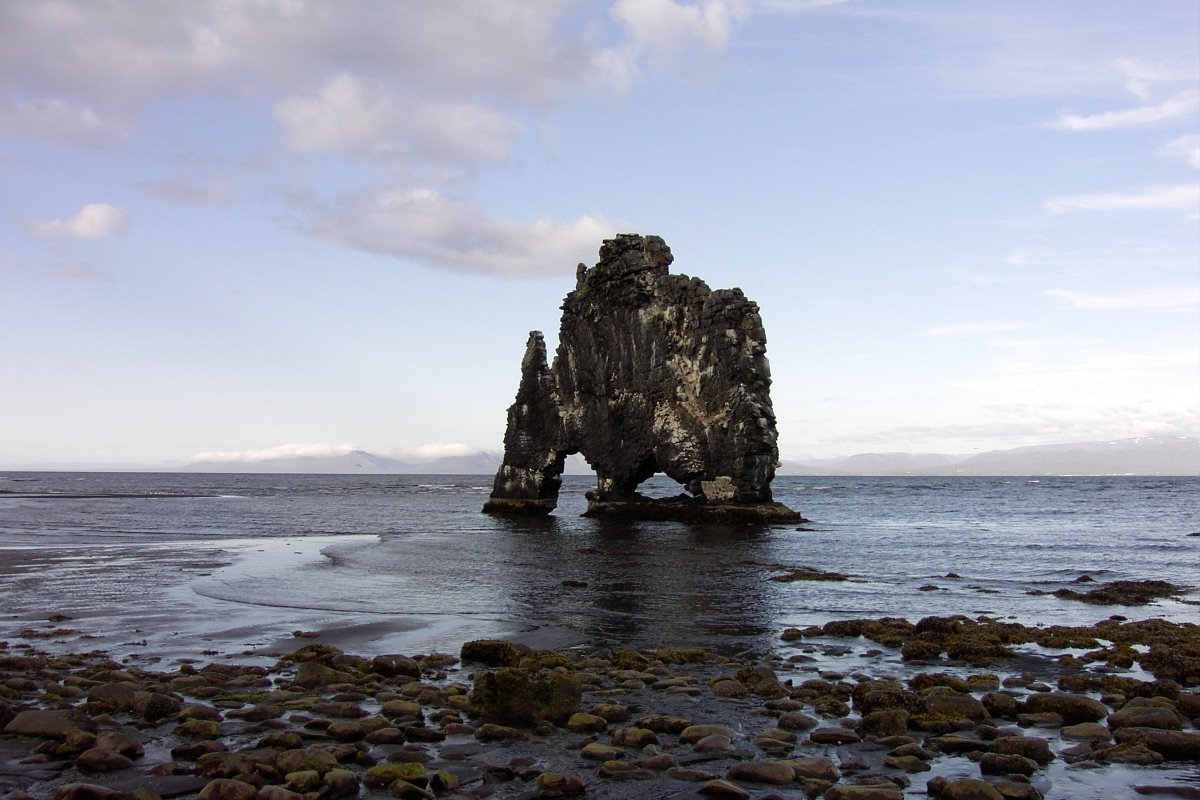

Hvítserkur Rock Formation - The Troll of North-West Iceland
"Bounties nowadays help invalidate patents of patent trolls (i.e. disarm/neutralise them), as we first noted some months back."It is important to name and shame the trolls, which are often pseudo-(or poly-)nymous. They keep shifting shapes and names so as to better cover their tracks and hide who's behind them (subsidising them and sometimes directing them, as Microsoft often does).
Several days ago when we wrote about patent trolls dropping like flies (because of legal challenges to their patents) we could just about predict/foresee Watchtroll writing in defense of these trolls. We don't want to feed the (Watch)trolls, but let's just say that it's pretty revealing who supports them and props up their agenda. It's often the sites sponsored by the trolls (like IAM) or authors to whom trolls are clients.
Bounties nowadays help invalidate patents of patent trolls (i.e. disarm/neutralise them), as we first noted some months back. Days ago Unified Patents (prolific filer of inter partes reviews (IPRs) at the Patent Trial and Appeal Board (PTAB)) posted not just one but two new examples of this. Someone "received a cash prize of $2000 for his prior art submission for U.S. Patent 6,434,599, owned by Epic IP," Mr. Jain wrote. Here's some background:
Unified is pleased to announce the PATROLL crowdsourcing contest winner, Nikhil Bhaskar, who received a cash prize of $2000 for his prior art submission for U.S. Patent 6,434,599, owned by Epic IP, an IP Edge subsidiary and well-known NPE. The '599 patent, directed towards an online chatting method, has been asserted against numerous companies in district court litigation. To help the industry fight bad patents, we have published the winning prior art below.
We would also like to thank the dozens of other high-quality submissions that were made on this patent. The ongoing contests are open to anyone, and include tens of thousands of dollars in rewards available for helping the industry to challenge NPE patents of questionable validity by finding and submitting prior art in the contests. Visit PATROLL today to learn more about how to participate.
Unified is pleased to announce the PATROLL crowdsourcing contest winner, Sachin Srivastava, who received a cash prize of $2000 for his prior art submission for U.S. Patent 8,023,647, owned by Cumberland Systems, LLC, a well-known NPE. The '647 patent, directed to a password encryption system and method, has been asserted against numerous companies in 24 district court litigations. To help the industry fight bad patents, we have published the winning prior art below.
A few years ago, a company called MacroSolve stopped creating products and started creating patent litigation. Its tool was a patent that claimed to cover mobile questionnaires. But after several of their targets decided to fight back, filing an ex parte reexamination request that wound up cancelling all of the claims of its patent, MacroSolve dropped their litigation campaign.
That should have been the end of the story—a poor-quality patent is issued, a company asserts the patent, and the patent gets invalidated. But as of last week, a new patent claiming the same basic idea is being used to go after a wide variety of restaurants under a new company name—Fall Line.
Questionable Patent #1
MacroSolve’s original patent on a “System and method for data management”—the ‘816 patent—claimed to cover taking a questionnaire, turning the questionnaire into tokens, wirelessly sending the tokens to a remote computer, using the tokens to collect a survey response from a user, and sending the results back.
In other words, the same online web survey using HTML forms that I filled out when I registered for college classes, years before MacroSolve “invented” the idea.
Say Goodbye To Questionable Patent #1
MacroSolve took the ‘816 patent and sued over 60 different companies, ranging from airlines to retailers to hotels. They filed their suits in the Eastern District of Texas. Rather than face the expense of litigation, a number of companies took inexpensive licenses, but eventually MacroSolve sued Newegg and Geico. They chose to fight, rather than settle, filing a request for ex parte reexamination.
The USPTO took a look at the ‘816 patent and agreed that it should never have issued—they cancelled all of the claims of the ‘816 patent.
And Hello To Questionable Patent #2
That should have been the end of the story. It wasn’t.
MacroSolve had filed a continuation application, which creates a separate patent application unaffected by the first patent being invalidated. After the ‘816 patent was invalidated, MacroSolve transferred the patents to a new company, Ediche, which continued to try to patent the same basic idea
In a challenge to Facebook’s patent application for a method for arranging images contiguously in an array, a prior art reference—a patent application filed by Perrodin that related to placing images on a grid and did not require contiguity in response to resizing or rearranging in all cases—could not have disclosed the limitation of Facebook’s application that required all of the image elements to be contiguous, the U.S. Court of Appeals for the Federal Circuit has ruled.
A federal judge on Tuesday kept intact the bulk of Blackberry’s patent infringement claims against Facebook and Snap, finding it’s too early in the proceedings to say Blackberry’s patents aren’t valid.
Blackberry sued the social media titans in March, claiming it pioneered the “sense of real-time presence” that is now standard in instant messaging applications when it developed the first messaging platform with timestamps.
The Canada-based smartphone maker accused Snap and Facebook of copying patents covering the timestamp tool, message notification icons, push notifications for ads and mapping media activity by users for their services.